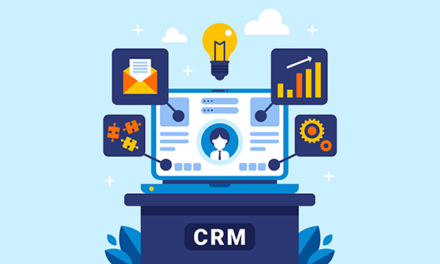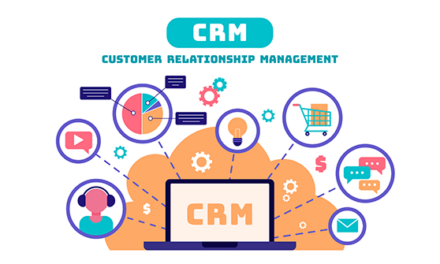Key Takeaways
- Real-time tracking ensures accurate and instant logging of hours, reducing revenue loss and manual errors.
- Predictive alerts help consultants anticipate time mismanagement, missed deadlines, and overwork before they escalate.
- AI-powered tools automate task classification, detect productivity patterns, and provide smart recommendations.
- Time intelligence transforms raw data into actionable insights for better client reporting and strategic planning.
- Adopting intelligent time tracking positions consultants for improved productivity, client trust, and business growth.
Time is the most valuable asset for consultants. With deliverables, client communications, research, and administrative tasks, knowing how time is spent is as important as how much is spent. The future of consulting work lies in smart, real-time tracking, empowered by AI and predictive insights.
In today’s fast-paced work environment, where remote and hybrid models are standard, traditional time sheets and manual logging are no longer sufficient.
Enter intelligent time tracking solutions that leverage real-time monitoring and predictive alerts to offer greater visibility, optimize productivity, and ensure accountability.
Let’s explore how modern time tracking tools are evolving and why consultants need them to stay competitive and efficient.
- What is real-time tracking, and why does it matter?
- Predictive alerts: Anticipating time management challenges
- AI-powered time monitoring: smarter, not harder
- Time intelligence: The new consulting advantage
- Seamless integration into consulting workflows
- Challenges and considerations
- Conclusion: Embracing intelligent time tracking
- Frequently Asked Questions (FAQs)
What is real-time tracking, and why does it matter?
Real-time tracking refers to the ability to automatically monitor and record time spent on tasks, applications, websites, or client work as it happens.
This represents a shift from manually logging hours at the end of the day or week, methods that are prone to errors and omissions.
Key benefits for consultants:
- Accurate Billing: Ensure every billable minute is accounted for, eliminating revenue loss.
- Client Transparency: Provide detailed reports that improve trust and show real value delivered.
- Productivity Insights: Understand where time is spent, and spot unproductive patterns.
- Crisis Readiness: Detect scope creep or time overuse early, and alert teams proactively.
Consultants operate in a high-pressure, outcome-driven environment. Real-time tracking empowers them to manage their time like a project, precisely, structured, and efficiently.
Predictive alerts: Anticipating time management challenges
Just as media intelligence services evolved to predict crises, time tracking tools now use predictive alerts to signal potential inefficiencies or overruns.
How predictive alerts help consultants:
- Workload Balancing: Get alerts when time allocation for a client or task exceeds the estimate.
- Deadline Management: Receive nudges to prioritize critical tasks when timelines are at risk.
- Burnout Prevention: Spot overwork trends and take action before productivity declines.
Imagine being warned early that you’re spending too much time on a low-priority task. Predictive alerts help consultants regain control over their schedules and workloads before problems arise.
AI-powered time monitoring: smarter, not harder
Artificial intelligence in time tracking goes beyond clocks and timers. Today’s smart solutions analyze work behavior, categorize tasks automatically, and generate actionable insights without human effort.
AI capabilities in consultant time management:
- Auto-categorization: AI detects and classifies work based on documents, tools, or context.
- Anomaly Detection: Spots unusual time usage patterns like late-night work or task switching.
- Contextual Recommendations: Suggests breaks, task batching, or re-prioritization based on usage.
Consultants no longer need to track time manually. AI makes the process passive, intelligent, and adaptive to each consultant’s work style.
Time intelligence: The new consulting advantage
Time tracking is no longer just about invoicing; it’s also about productivity. Modern productivity tools provide time intelligence and strategic insights that consultants can use to improve client outcomes, efficiency, and business growth.
Advanced features that matter:
- Client Time Reports: Breakdown of hours by project, deliverables, and non-billable activities.
- Efficiency Benchmarks: Compare performance across weeks, projects, or peers.
- Integrated Goal Tracking: Align time spent with goals or OKRs to measure real value delivered.
This is where smart time tracking becomes a consulting advantage, not just a necessity.
Seamless integration into consulting workflows
Just like media monitoring tools integrate with Slack or CRMs, time management tools plug into project management software, calendars, and communication platforms.
Why consultants need this:
- Minimal Disruption: Time logs are captured without switching between tools.
- Unified View: Connects time data with project progress and client communication.
- Cross-Functional Visibility: Helps finance, operations, and consulting teams stay aligned.
Consultants need tools that work as fast as they do, automated, integrated, and non-intrusive.
Challenges and considerations
While AI-powered time tracking is promising, some challenges must be addressed:
- Privacy Concerns: Over-monitoring can feel invasive if not implemented transparently.
- AI Limitations: Relying solely on automation without context can lead to misclassification of work.
- Adoption Hurdles: Some consultants may resist the shift from traditional to tech-based tracking.
Solutions must strike a balance between automation and human flexibility, as well as ethical practices.
Conclusion: Embracing intelligent time tracking
Just as media intelligence has evolved to predict and respond in real time, time tracking for consultants must do the same. Real-time, AI-enabled systems allow consultants to go from reactive time logging to proactive time management.
These systems offer better accuracy, predictive foresight, workflow alignment, and strategic insight.
In a world where every minute counts, consultants who adopt intelligent time tracking solutions stand to gain higher productivity, more transparent client relationships, and ultimately, better business outcomes.
Frequently Asked Questions (FAQs)
1. What is real-time tracking?
It’s the continuous, automatic logging of tasks and activities, eliminating the need for manual entries and offering real-time insights into how time is spent.
2. Why is time tracking important for consultants?
It ensures accurate billing, improves productivity, helps with client transparency, and provides insights to manage time more strategically.
3. How does AI improve time tracking?
AI automates task categorization, detects anomalies, and offers recommendations to optimize time usage.
4. What are predictive alerts in time tracking?
These are AI-driven notifications that warn consultants about inefficiencies, upcoming deadlines, or potential burnout before they become critical.
5. Can small consulting firms benefit from AI-based time tracking?
Absolutely. These tools are scalable and can help solo consultants and small firms improve accuracy and decision-making.
6. Are there any privacy concerns associated with real-time tracking?
Yes, which is why it’s essential to use tools that are transparent, customizable, and respectful of personal data boundaries.




